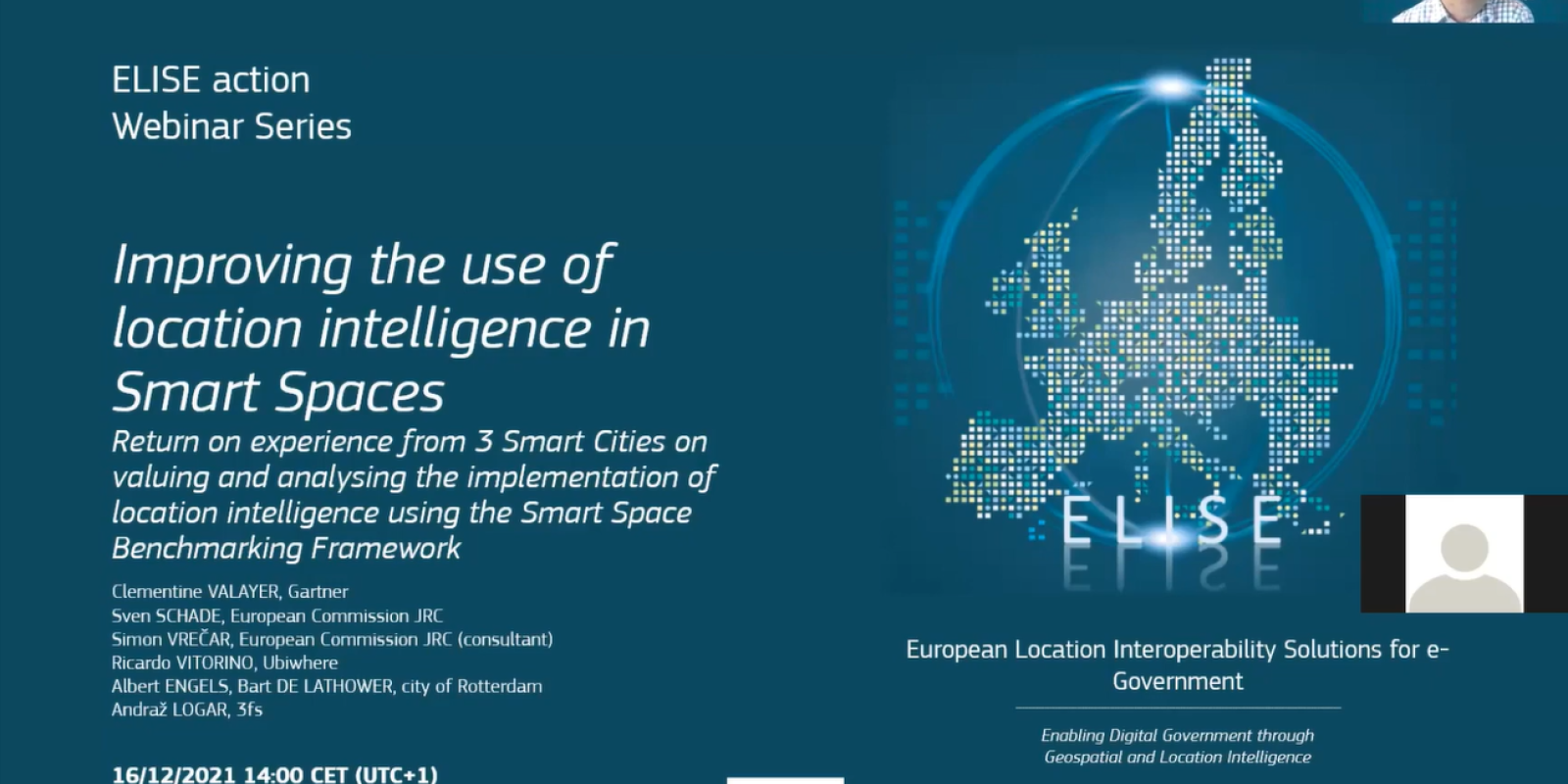Improving the use of location intelligence in Smart Spaces


Return on experience from 3 Smart Cities on valuing and analysing the implementation of location intelligence using the Smart Space Benchmarking Framework
In recent years, the wide diffusion of technologies such as cloud computing, Internet of Things (IoT), and 4G/5G has enabled many cities to transform into hubs of digital transformation, deploying urban platforms, digital twins of cities and other digital ecosystems leveraging location information.
Smart cities are part of a wider trend, which has a strong element of location - the Smart Space, which also includes smart buildings and many more. A Smart Space can be defined as a combination of physical and digital environments in which people and technology-enabled systems interact in dynamic, inter-connected and intelligent ecosystems.
Such Smart Spaces represent a new approach in design and integration patterns and architectures to create new outcomes from legacy, new and emerging technologies and services. Gartner sees market demand accelerating for Smart Spaces as emerging technologies and techniques, such as IoT and artificial intelligence (AI), are increasingly available at a greater scale.
While we witness the market for Smart Spaces expanding, we lack a deeper understanding of its challenges and the possible solutions that location intelligence might provide. Within the context of ELISE, we see a particular opportunity to identify areas where the public sector can help in addressing these challenges.
Developing a benchmarking framework to analyse Smart Spaces in this context is particularly important to identify barriers, for example, in the interoperability of (location) data and technology, anticipating emerging market demands, and the derived recommendations for improving the status quo – especially for required actions of the public sector.

The four dimensions of the Smart Space framework
In this webinar, the expert in Data-Driven Government Clémentine Valayer from Gartner Consulting and special guests Ricardo Vitorino from Ubiwhere speaking about the City of Guimarães, Albert Engels and Bart De Lathouwer from the city of Rotterdam and Andraž Logar from 3fs speaking about Smart Mlaka share insight on:
- A proposed Smart Space Benchmarking Framework and its four dimensions
- Return on experience from applying the analysis the framework to three Smart City cases
- Key findings on improving the use of location intelligence in Smart Spaces include proposed public sector actions and stimulating data availability.
In the discussion part, Andrea Halmos and Marco Minghini, both from the European Commission, Michael Mulquin from Oascities, and Greta Nasi from Bocconi University, will reflect on the topic and share their experience.
From this webinar, different stakeholder groups may benefit:
- Public policymakers
- Private companies implementing solutions
- Local and Regional authorities (e.g. Municipalities)
- GIS solution providers
- Researchers




